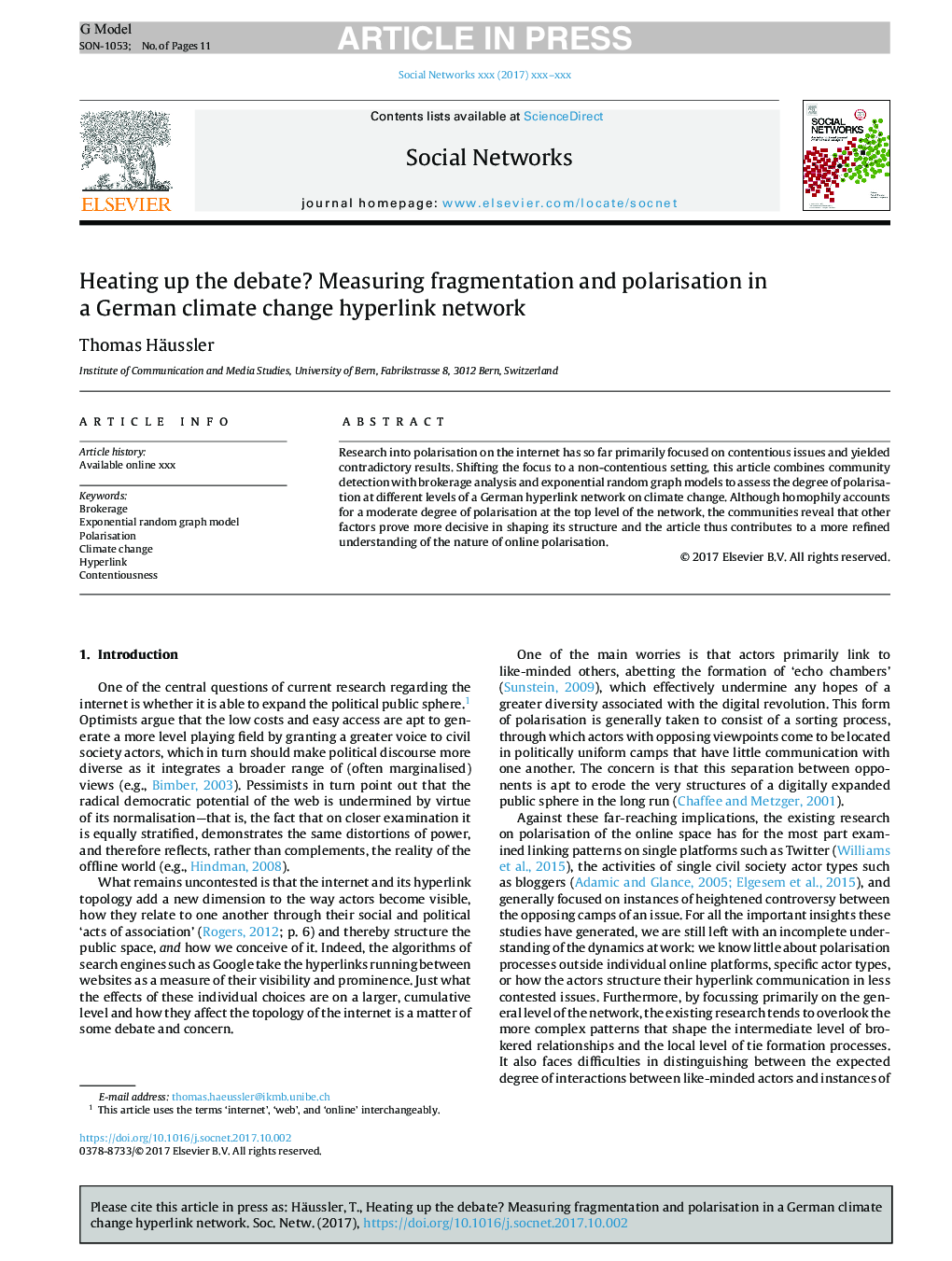| Article ID | Journal | Published Year | Pages | File Type |
|---|---|---|---|---|
| 7538329 | Social Networks | 2018 | 11 Pages |
Abstract
Research into polarisation on the internet has so far primarily focused on contentious issues and yielded contradictory results. Shifting the focus to a non-contentious setting, this article combines community detection with brokerage analysis and exponential random graph models to assess the degree of polarisation at different levels of a German hyperlink network on climate change. Although homophily accounts for a moderate degree of polarisation at the top level of the network, the communities reveal that other factors prove more decisive in shaping its structure and the article thus contributes to a more refined understanding of the nature of online polarisation.
Related Topics
Physical Sciences and Engineering
Mathematics
Statistics and Probability
Authors
Thomas Häussler,
